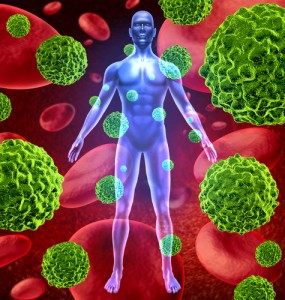Prostate Health – Guide to Men in Brooklyn and NYC
Urinary Problems, Prostatitis/Infection, Prostate Cancer, Enlarged Prostate
What does Every Man Need to Know about the Prostate?
Every man has a prostate gland. The prostate gland is involved in reproduction. It provides nutrition and the necessary microenvironment for the sperm. There are no other known functions for the prostate. The prostate gland sits just outside the bladder and is wrapped around the urethra through which the urine passes from the bladder to the outside. When a man develops a urinary problem the problem can often be traced to the prostate.
There are a number of health concerns that are related to the prostate that every man needs to know about. The prostate gland can be affected by prostatitis which is an inflammation of the prostate which could be due to infection or be noninfectious. The prostate gland can also develop BPH, a benign enlargement of the prostate. The prostate can also be affected by prostate cancer.
“The challenge facing patients and urologists alike is that the symptoms of BPH and prostate cancer overlap. They are often indistinguishable.” says Dr. Alex Shteynshlyuger
Starting in the late 30s and early 40 the prostate starts to grow and enlarge. When the prostate enlarges in size due to BPH (benign prostatic hyperplasia) or prostate cancer, in some men the prostatic enlargement can cause urinary problems. What is curious is that in some men the prostate can grow very large but does not cause urinary problems. The difference seems to be whether the prostate grows inwards or outwards. The prostate grows inwards and pushes on the lumen of the urethra or “the pipe” urinary problems develop. When the prostate grows outwards even when it becomes very large as long as the pipe (urethra) is spared no significant problems develop.
As the prostate enlarges it can encircle the urethra and cause difficulty urinating which can lead to a number of problems. The strain on the bladder can sometimes be transmitted to the kidneys and cause damage to the kidneys. It can also weaken bladder muscles to the point that over time they may stop contracting. This can lead to the inability to empty the bladder which we call urinary retention.
When the bladder does not empty fully this could predispose to stone formations in the bladder and recurrent urinary tract infections also known as bladder infections. As the prostate grows it can also become friable and can cause bloody urine.
In summary, prostate enlargement can be caused by BPH or prostate cancer. Occasionally it can also be caused by acute (infectious) prostatitis or UTI.
The symptoms of prostate cancer and BPH can be similar. Careful urological evaluation is necessary, therefore.
Evaluation and Treatment of Prostate Problems
Urologists specialize in treating prostate problems. Typically evaluation would include a physical exam including a DRE (digital rectal exam). Imaging studies such as ultrasound or post-void residual and urinary studies such as urinalysis and uroflow may be performed based on individual needs.
Once a diagnosis is established, appropriate treatment can be decided on. Read more about diagnoses and treatments available for enlarged prostate and BPH, Prostatitis, and prostate cancer.
Dr. Alex Shteynshlyuger is a fellowship-trained board-certified urologist with expertise in treating men for prostate-related problems including prostate enlargement, BPH, prostatitis, and prostate cancer. If you or someone you know has been diagnosed with urinary problems related to the prostate or is concerned about your prostate health, make an appointment to take advantage of Dr. Shteynshlyuger’s expert advice.